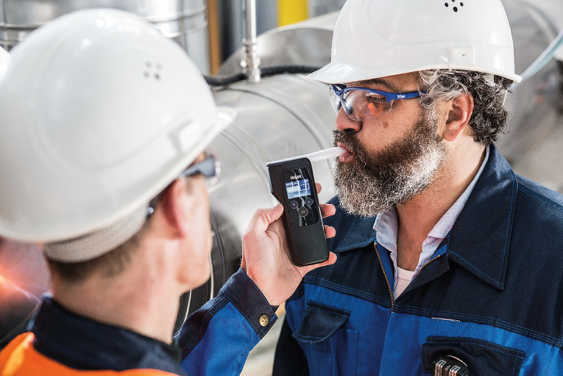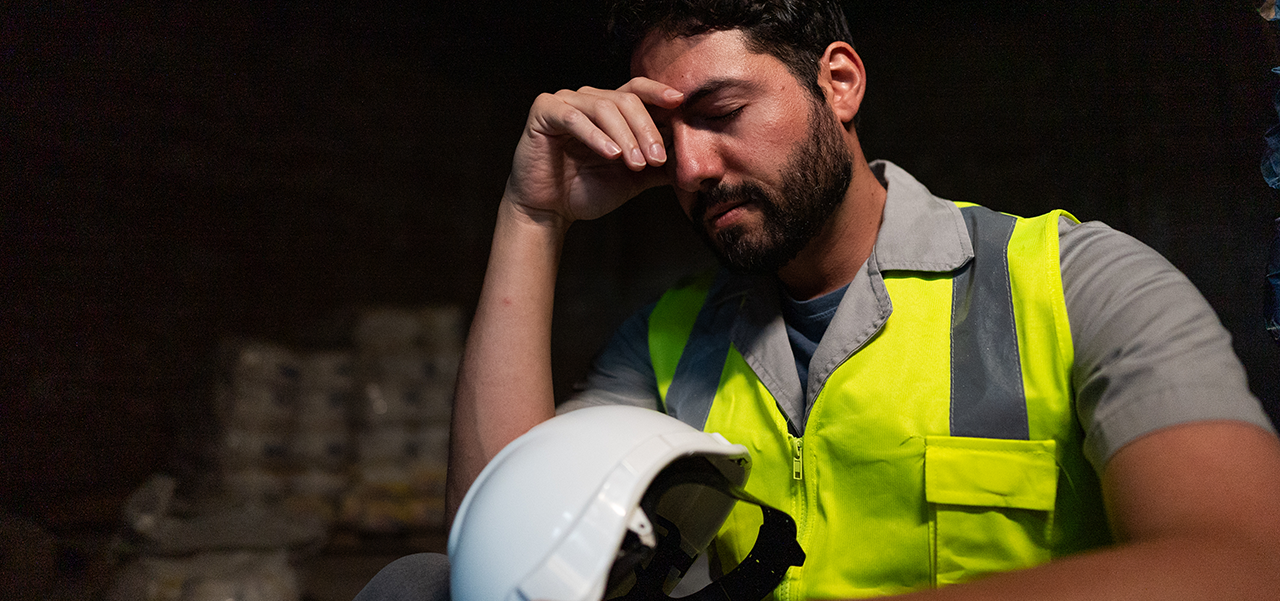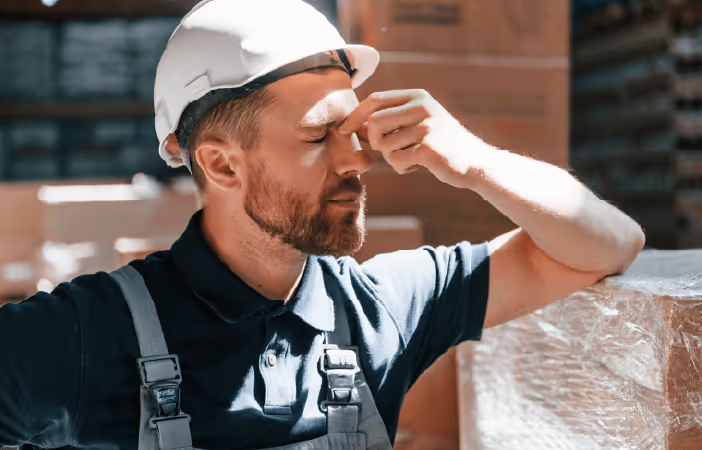THE SAFETY UPDATE 005
DRUGS AND
ALCOHOL
ON SITE


SUBSTANCE USAGE IN CONSTRUCTION
The construction sector has consistently shown higher rates of substance use compared to many other industries. The physically demanding nature of the work, combined with a traditional workplace culture that has historically normalised after-hours drinking, creates an environment where substance use can flourish. Long working hours, fly-in-fly-out arrangements, and the stress associated with project deadlines further compound these pressures.Research has indicated that construction workers face elevated risks of both alcohol misuse and illicit drug use. The casual nature of much construction employment, where workers may move between sites and employers, can make consistent monitoring and support more challenging than in industries with stable workforces.
COMMON SUBSTANCES & USAGE PATTERNS
Alcohol remains the most commonly used substance, with a culture of "knock-off drinks" still prevalent on many sites. However, stimulant drugs, particularly methamphetamine, have emerged as a serious concern. Workers may use stimulants to cope with fatigue from long shifts or physically exhausting work, creating a dangerous cycle where substance use becomes intertwined with work performance. Cannabis use is also reported among construction workers, raising concerns about impairment during working hours, particularly given the drug's extended detection window in testing programs.
HOW ALCOHOL CAN AFFECT YOU
Alcohol can seriously affect your concentration, coordination, and judgment. This isn’t acceptable when you’re working around heavy machinery, vehicles, or other people. Even a few drinks the night before can leave you impaired the next morning without realising it.
Some issues alcohol can cause:
+ Turning up late or missing work altogether
+ Cause mistakes and accidents on site
+ Poor communication and decision making
+ Damaging the trust and reputation of the team
CULTURAL CHANGES
Changing the culture around substance use in construction requires addressing deeply ingrained attitudes. The industry's historically male-dominated workforce and culture of toughness can make it difficult for workers to seek help or admit to problems. There's often a perception that being able to "handle your drink" or work through hangovers is a badge of honour rather than a risk factor.Union organisations and industry bodies have increasingly recognised the need for cultural change, promoting campaigns that emphasise that looking after your mates includes helping them address substance issues.
IF YOU ARE UNDER THE INFLUENCE
If we have reasonable belief that someone is under the influence of alcohol, they’ll be sent home without pay for the remainder of the day. This isn’t about punishment, it’s about protecting you, your co-workers, and the public. We all want to go home safe at the end of the day, keep our jobs, and maintain the respect we’ve built on site. Turning up fit for work is a basic expectation, and it’s part of being a professional. If you’re struggling or need help, speak with who you feel most comfortable with (on site supervisor, divisional manager, OHS team) We’ll always look to support people early, but safety must come first. Let’s keep our worksites safe, sober, and professional.
HOW POINT FORCE GROUP CAN SUPPORT YOU
Point Force is committed to creating a workplace culture that prioritises mental health and wellbeing alongside safety and productivity. We understand that supporting our team's mental health is not just the right thing to do, it’s a non-negotiable commitment. Here are just some of the ways we aim to support our team with their mental health:
+ Mental Health Commitment
As part of our Personnel Positive brand values, we foster an open, supportive workplace culture where mental health conversations are normalised and encouraged. Our leadership team is trained to recognise signs of mental health struggles and respond with empathy and appropriate support.
+ Regular Site Visits
Both our Health & Safety team and our Division Operations teams conduct regular site visits, to check in on employees and their welfare. We encourage employees to report any situations on site which are affecting their wellbeing, no matter how small, both mental & physical, so that we can do our very best to assist and deal with the matter.
+ Injury Management
Injuries on site can cause trauma, unstable financial stress, dealing with pain & struggling for fulfilment, which can all be mental health triggers. Point Force Group’s committed approach to injury management aims to intervene early when a team member suffers an injury, providing constant communication and support throughout the healing process.
+ NAWIC Employee Assistance Programme
As a proud member of National Association of Women in Construction (NAWIC) we have been granted access to an Employee Assistance Programme which helps to support any Point Force Group employees with any challenges they may be facing. For more information on how to avail of this programme, reach out to safety@pointforcegroup.com
Point Force recognises that supporting our teams mental health is an ongoing commitment, not a one-time initiative. We continuously review and improve our mental health support systems based on team feedback and industry best practices.
Alcohol & Substance abuse resources:
+ The Alcohol & Drug Foundation: www.adf.org.au
+ Alcohol & other drugs knowledge centre: www.aodknowledgecentre.ecu.edu.au
+ Headspace: www.headspace.org.au
+ Alcohol Think Again: www.alcoholthinkagain.com.au
Other news & insights
Stay informed with the latest industry news, expert insights, and project updates from Point Force Group.



